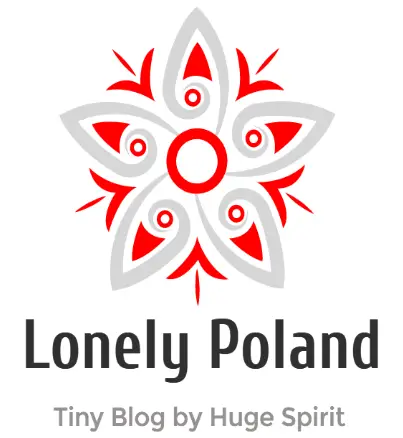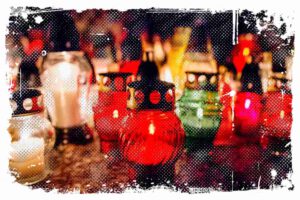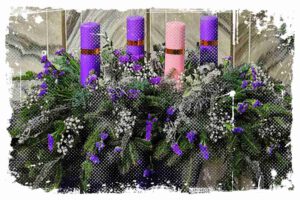As someone who has followed the debates about Halloween in Poland, I can say that the holiday has long been a contentious issue in the country, with strong opinions on both sides. The Catholic Church and its members have been particularly vocal in criticizing the holiday, citing its pagan roots as the main reason they object to it.

Halloween in Poland is not a traditional celebration. It is mainly taken over by teenagers influenced by foreign traditions. Some young people enjoy organizing horror movie marathons, playing pranks, and indulging in spider-shaped jelly beans. However, if done right, Halloween could potentially become one of the Slavic holidays one day.
While the assortment of Halloween-themed decorations and products on store shelves might lead one to believe that Poles are eager to celebrate the holiday, a survey conducted by Havas Media Group aimed to determine the actual attitudes and behaviors of Poles toward the holiday. The survey asked, among other questions, whether or not Poles actually celebrate Halloween. It also asked how they perceive this imported custom.
Controversy Over Halloween in Poland
Many high-ranking church members have spoken out against the holiday, saying it violates Polish cultural traditions and should not be celebrated, especially during the Day of the Dead, which should focus on reflection and prayer. In fact, some have gone so far as to suggest that Halloween games and activities are somehow connected to Satan worship and should be banned altogether.
↳ PRO TIP: Do you like traveling? Then before you buy any ticket or book an attraction, check if it's available in this worldwide Viator Database. You may save a lot of money and time. No need to thank me :)
It’s not just the church that is criticizing Halloween in Poland. Leading politicians are also questioning whether or not they will be able to celebrate the holiday in 2022. In fact, a petition for a ban on Halloween has been submitted to the Sejm in the past, which added to the uncertainty around the celebration.
Is Halloween Legal in Poland?
It’s important to note, that there are no laws prohibiting the celebration of Halloween in Poland, which means that you can participate in the games and traditions of the holiday without worrying about legal repercussions. Similarly, there are no laws prohibiting trick-or-treating, although I saw some conservative neighbors reacting negatively to the tradition.

Still, some city officials are less enthusiastic about Halloween than others, with some taking a different approach to the holiday. For example, the mayor of Siemianowice Śląskie, has decided to hold an event called „Heaven Wins” on All Saints’ Eve as an alternative to Halloween. Rather than ghouls and ghosts, the event involved people dressed as angels handing out candy to local residents.
Halloween Statistics
According to Havas Media Group, statistics show that celebrating Halloween is not very popular among Poles, with less than 20% of respondents actively participating in the custom. It’s also worth mentioning that young Poles aged 18-24 are more likely to participate in Halloween compared to the older generation. The most common way to celebrate Halloween is to decorate your home, followed by watching horror movies and attending a party.

Personally, I don’t actively participate in Halloween festivities, but it seems that the younger generation finds it quite appealing. According to the survey, more than half of Poles (51.8%) think that Halloween is a pleasant day for children and teenagers. In fact, a significant percentage of Poles (46.3%) have noticed that during Halloween, children visit houses in costumes and collect sweets in their immediate surroundings. Approximately 30% of us even prepare for the visit of young people by decorating our houses or buying sweets.
Despite the high percentage of Poles who witness Halloween celebrations in their vicinity, only 17.6% of parents claim that their children take part in various activities related to the day. However, the most common form of Halloween celebration, reported by over 60% of parents, is carving and decorating pumpkins. A little less than half of the parents say that their children collect candy or take part in Halloween games organized by the schools or nursery schools on this day.
Celebrating Halloween in Poland
Nowadays, it is not unusual to see a group of children dressed in eerie costumes shouting „trick or treat”.Nevertheless, not everyone is familiar with this custom, and young peddlers are not always welcomed. In suburban areas or small settlements, it is usually easy to know which houses to visit and which to avoid.
If there are Halloween decorations on display outside a house, it’s a sign that the residents are prepared for the holiday and are willing to participate in the fun. Kids only knock on those doors, and never enter other houses.
Theme Parties in Clubs and Pubs
In Poland, Halloween parties are also quite common, organized by both clubs and individuals. The fascination of some Poles with dark atmospheres is also exploited by amusement parks and places connected with ghosts and mysterious legends. For instance, night tours with ghosts are organized at castles like Czocha and Książ.
Even some restaurants have picked up on the theme and host creepy dinners at the end of October. The potential of the festival is also tapped by cinemas, which offer special thematic shows or horror marathons.

As you can see, Halloween, although still not entirely accepted in our country, can be celebrated in numerous ways, allowing us to choose the level of thrill we desire to experience on this day.
By the way, please check my other article from which you can learn everything about abandoned palaces in Poland. Sounds creepy, right?
What Do People Actually Think About Halloween?
According to a survey, 44.6% of Poles hold a neutral stance on the increasing popularity of Halloween in Poland, neither perceiving it as positive nor negative. For them, Halloween is primarily a day for fun (45.4%) and a chance to dress up and spend the day differently (48.1%).
Despite most Poles’ view of Halloween as a day of entertainment, its downsides are also recognized. For many, Halloween is purely commercial, with stores and brands using it as an opportunity to increase sales. Some Poles also believe that we should prioritize celebrating our native traditions related to All Saints’ Day and All Souls’ Day.
It’s difficult to say for sure whether Poles are fearful of the popularization of Halloween. While 41.8% of adult Poles expressed concerns that Halloween could displace our native traditions and disrupt the mood of All Saints’ Day, 43.1% of respondents did not share these fears.
The History of Halloween
Although Halloween is often associated with America, it has roots that date back over two thousand years. It originated in Ireland, where the Celts believed that on this night, the worlds of the living and the dead merged. The Celts put on masks to avoid being recognized by any wandering souls who might cause them harm. In Poland, people have taken this idea even further, fully disguising themselves as ghosts, zombies, or skeletons. Although dressing up as popular comic book characters like Captain Marvel or Catwoman may not fit the Slavic theme quite as well.
What Is The Origin Of The Name Halloween?
Interestingly, the name „Halloween” originated from „All Hallow’s Evening,” which is the night preceding All Saints’ Day. In Poland, we have a similar celebration called Dziady, specifically Dziady autumn. Although many people associate Dziady with mandatory school readings, it is actually a holiday that is much more interesting, profound, and terrifying than it might seem at first glance.
If you want to truly frighten someone, it won’t be accomplished by dressing up as a round pumpkin or throwing a sheet over yourself. Instead, consider dressing up as „boginie”, „wodnice”, or „Welesa”. I can guarantee that the spirits will extend an invitation to the sorority of the dead themselves, as long as you have the courage to stay and not run away in haste.
Nature Worship in Slavic Nations Was Similar to Halloween
The ancient Slavic beliefs were founded on the worship of nature, which was the fundamental source of life. Nature was a powerful force, and many of its aspects were inexplicable, which is why things like thunderstorms, lightning, and snow were associated with magic. Similar to the Greeks, the ancient Slavs had a vast pantheon of deities. Through these deities, they explained changes in the seasons, prosperity, love, and death. When the mind couldn’t comprehend something, faith was there to fill the gap.

Perun, the god of thunder and war, whose image included a stone lightning bolt, was at the top of the Slavic pantheon. Another god, Świętowit, had four heads and held a horn in his hand. This figure was believed to have supernatural powers. The Polish equivalent of Hades was Weles, the god of the afterlife, to whom a three-year-old bull was sacrificed. When these deities were expected to visit, people would prepare animal horns, various herbs, and grains to decorate their homes.
The Rusalkas, in my opinion, were the most dangerous figures of Slavic beliefs. They were considered demons who hid their evil intentions behind their beautiful faces. Rusalkas were known to lure young men with their seductive dances and could even tickle them to death. In some cases, they would simply drown anyone who couldn’t answer their riddle.
Conclusion
Halloween is a holiday that has become a part of Polish reality, and while some see it as a chance to have fun and confront the issue of death, others see it as a glorification of evil and violence. Nevertheless, it is a festival enjoyed by many. More and more people are not only dressing up as scary characters from fairy tales and legends, but are also interested in the history of the holiday and how it is celebrated in different parts of the world.
Bibliography
- https://turystyka.wp.pl/halloween-w-polsce-latwo-poznac-ktory-dom-lepiej-omijac-6828847897811488a
- https://pl.wikipedia.org/wiki/Halloween
- https://www.mjakmama24.pl/mama-i-tata/imprezy-okolicznosciowe/halloween-w-polsce-za-i-przeciw-czy-pozwalac-dziecku-swietowac-aa-FBzL-ma3e-5KYb.html




